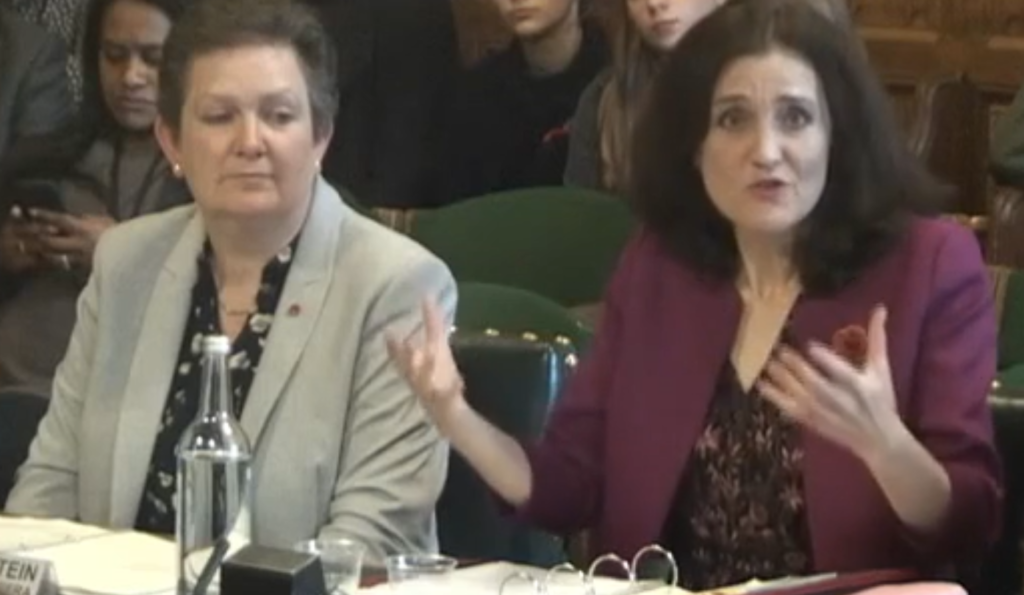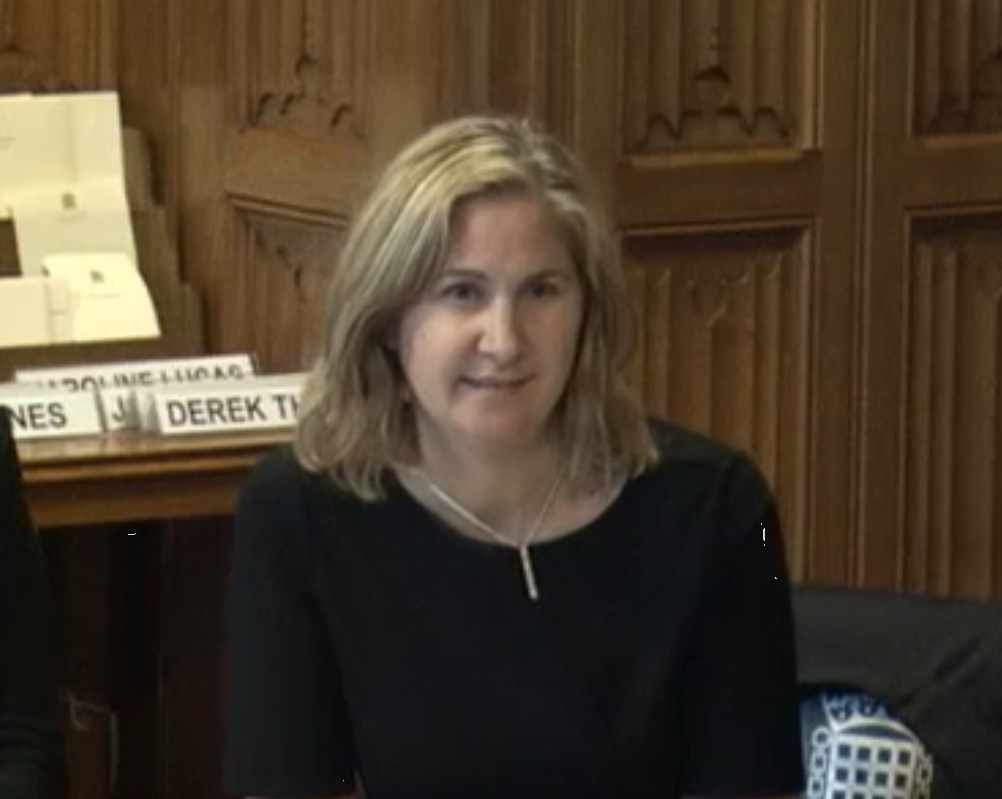Environment Secretary Theresa Villiers has been pressured to justify the existence of over 50 compliance schemes which MPs have claimed lead to less environmentally-friendly waste disposal practises.

Theresa Villiers (r) defended compliance schemes whilst giving evidence to the Environmental Audit Committee
Whilst appearing before the Environmental Audit Committee yesterday (29 October), Ms Villiers was questioned by Anna McMorrin – Labour MP for Cardiff North – on the compliance arrangements for current producer responsibility programmes.
Currently, producers of certain products such as packaging and waste electricals and required to pay towards the cost of recovering and recycling them and can do this by paying money to a compliance scheme. The compliance schemes then purchase recycling evidence on their behalf.
Ms McMorrin said: “At the moment there is competition between 52 compliance companies which means there is a race to the bottom. That’s about who can offer the least, that’s about sending recyclate abroad and that gets thrown into our oceans.”
Incentivise better standards
But, in a heated exchange, the Environment Secretary defended the role competition between compliance schemes plays in the purchasing of Packaging Waste Recovery Notes (PRNs).
“I don’t understand why you are saying there is a race to the bottom here. What we are actually trying to do is incentivise higher standards,” Ms Villiers said.
“With Extended Producer Responsibility the charges will reflect the quality of the product. So they are likely to be lower.”
Yet Ms McMorrin insisted that consultations with the waste industry, retailers and producers had shown they wanted a simplified system. The results of these consultations were published in July. (see letsrecycle.com story)
She added: “We only need one compliance route through this and we only need one or two organisations to make sure that work is being done.
“They need transparency, they don’t need the competition between compliance.”
Packaging producers – companies who handle over 50 tonnes of packaging with turnovers over £2 million – must buy sufficient PRNs to offset their PRN purchasing obligation, using a ‘polluter pays’ principle.
Textiles
Ms Villiers also reiterated that an Extended Producer Responsibility (EPR) scheme for textiles should be considered in the future, following a question from Phillip Dunne, Conservative MP for Ludlow.
In June the Environmental Audit Committee recommended that the government introduce a new EPR scheme to reduce textile waste through a one penny charge per garment on producers. This was rejected by the government, though it said it would consider the measure during the development of new EPR programmes.
Commenting on a future textile EPR, Ms Villiers explained: “What we would be looking at if we did go down this route in the future is rather than the penny on the price of a garment we would probably look for a more modulated system to try and provide incentives for a switch to more renewable practices and more recycling.”
But she added: “I think we have to get the plastic packaging EPR off the ground first.”
The post Villiers defends compliance scheme system appeared first on letsrecycle.com.
Source: letsrecycle.com General



